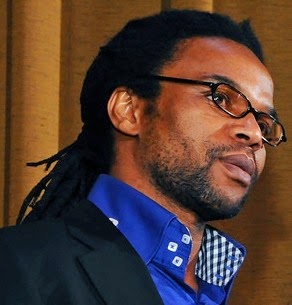Blurb by José Cossa
The book is a timely piece and a very easy read fashioned as a confessional session. Nnamdi presents the phenomena of Facebook addiction as an issue that must be acknowledged and confronted by a generation whose social skills are challenged by advances in technology and its new innovation, social networking. Prior to delving into the book, I suspected that the creation of a social network forum to cure an addiction created by social networking was a paradox; it was as having an Alcoholics Anonyms group meeting in a bar. However, it was not long before I came across this same claim made by one of the personages’ confession and I realized that part of the problem is that this group could be made of individuals living many miles apart and a physical meeting impossible or rather extremely difficult to coordinate and afford; thus, it only makes sense to create a social network anonymous group in an online forum.
In recognition of the seriousness of the issue, Osuagwu claims that Facebook is the heroin of social networking and an epidemic. One of the personages equated Facebook addiction to nicotine addiction. I concur in that, like any gadget and computing fad, Facebook seems to contain that addictive ingredient that makes Pavlov’s dogs look like a joke. Through the narratives of its personages, the book covers a wide variety of subjects ranging from friendship, dating, obsession, deception, love, hate, stalking, withdrawal, dependency, and many others. Some of the symptoms include disconnection from the real world, loss of perspective on real life responsibilities, neglect of personal life, and obsession and compulsive behavior.
Although one cannot generalize that all Facebook users are addicts and that using Facebook leads to addiction (and Osuagwu does make it a point to remove himself from such a generalization), the highest merit of the book is in bringing to surface a phenomena that places a challenge to real life social relationships that is comparable to a drug addiction. Its limitations lie on the fact that no contextual framework is provided for readers who are not Facebook users—there is either an assumption that all readers are knowledgeable of Facebook (perhaps the target population envisioned by Osuagwu does have such a knowledge, thus the lack of such a framework) or a critical oversight that excludes those who are not in the Facebook culture. Interestingly, when I met Nnamdi at a spoken word and hip hop night at Bus Boys and Poets in Washington, DC—where he presented some of his well-thought spoken word pieces based on his work “Ice Cream Melts” and promoted two of his books—one of the first questions he asked me was whether I had a Facebook account and then went on to suggest that I create one so I can access socialnetworkingaddiction.com and with some optimism, I could only imagine that this was, at best, a reflection that the virtual group that every addict confesses to have saved their life is not an attempt to ban Facebook or to discourage social networking.
I recommend reading this book. To learn more about this work visit http://www.TheFacebookAddiction.com
NOTE: José Cossa is a published author, a scholar of Comparative and International Education, a researcher and evaluator of computing education programs--i.e., Broadening Participation in Computing (women and minorities)--an independent consultant for the World Bank higher education sector (equity issues in the Africa region), a poet, and is currently working on a book collaboration with a friend on "The Idea of Power and Power of Ideas" and a novel covering a wide variety of social topics.

No comments:
Post a Comment